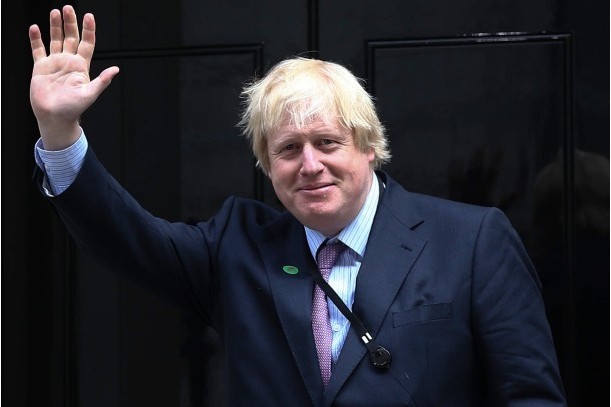Latest News
Group warns Britons in EU on bank account closures due to no-deal Brexit

News Highlight
With the warning by British banks, no-deal Brexit will also cause considerable disruption for many individuals, families, businesses and other organisations that currently operate UK bank accounts.
British citizens currently living in the European Union are at risk of losing their bank accounts and credit cards with United Kingdom banks within weeks if the UK government fails to reach an agreement with the EU on a trading relationship after the country finally leaves the union on December 31, 2020.
This warning came in a statement sent to Financial Nigeria, on Friday, by deVere Group, one of the world’s largest independent financial advisory and fintech organisations. Nigel Green, chief executive and founder of the firm, warned Britons who live in the EU to urgently seek alternatives to avoid being stripped of their UK bank accounts.
“Most of the major UK banks are already writing to customers to inform them that they will no longer be able to provide them with banking services, unless they have a UK address,” Green said.
Currently, British banks operate under a 'passporting' system, which allows banks in the EU to trade freely in any other state in the European Economic Area (EEA) without the need for more authorisation. But when Britain formally leaves the bloc that is now made up of 27 member countries on December 31, UK banks will no longer be allowed to provide services to customers in the EU without the right banking licences.
“To operate without passporting becomes enormously complex, incredibly time-consuming and very expensive for banks. This is the reason why they are ditching many of their customers across Europe – even if they have been with them for decades,” Green noted.
The UK left the EU on January 31, 2020. The country had voted to leave the bloc in a 2016 referendum after 43 years in the union. The UK, however, still remains in the EU customs union and single market for an 11-month transition period, that will end on December 31.
The transition period is to enable the parties negotiate a trade deal that will determine Britain's future trading relationship with the EU. If a deal is not agreed on and implemented before the end of the transition, and no transition extension is agreed, UK-EU trading relationship would be subject to tariffs and quotas set under World Trade Organisation (WTO) terms until a free trade deal is reached between both sides.
Post-Brexit trade talks have stalled at different times over fundamental differences between the demands of the two sides. UK’s Prime Minister, Boris Johnson, has expressed the country's preference for a free trade agreement (FTA) with the EU that is similar to Canada’s. This means an FTA that is without or with very few tariffs on imports and exports and that removes barriers to trade.
But in the event of no-deal Brexit, Johnson has said the UK will trade with the bloc on similar terms as Australia does. Australia currently trades with the EU under WTO rules. With the warning by British banks, no-deal Brexit will also cause considerable disruption for many individuals, families, businesses and other organisations that currently operate UK bank accounts.
The CEO of deVere Group said those who would be affected should urgently seek alternatives with providers that already operate under pan-European rules to “sidestep avoidable issues.” The firm, which operates a global money app and card service, called Vault, said it experienced a 67 per cent jump in enquiries on the service in the third quarter of this year.
According to deVere, the app allows users to deposit, store, transfer and exchange money in most major currencies. The deVere Vault Prepaid Mastercard® can be used online, in-store and at any ATM location across the globe where Mastercard is accepted.
“There’s a growing need for clients to have borderless access to, and management and use of their money,” Green added. “Challenger banks and fintech firms are stepping up as traditional banks are now having to routinely abandon their customers due to Brexit.”
Related News
Latest Blogs
- The Museum of West African Art saga
- The complexity and complication of Nigeria’s insecurity
- Between bold is wise and wise is bold
- Prospects of port community system in Nigeria’s maritime sector
- Constitutionalism must anchor discipline in Nigerian Armed Forces
Most Popular News
- NDIC pledges support towards financial system stability
- Artificial intelligence can help to reduce youth unemployment in Africa – ...
- Afreximbank backs Elumelu’s Heirs Energies with $750-million facility
- AfDB and Nedbank Group sign funding partnership for housing and trade
- GlobalData identifies major market trends for 2026
- Lagride secures $100 million facility from UBA







